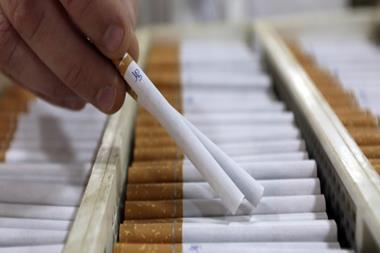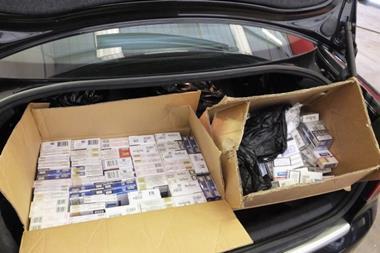The government has unveiled its latest Tobacco Strategy document, which promises to maintain high levels of taxation on tobacco products and a review of penalties available against retailers who sell to the underaged.
The document says the government will “review sanctions to ensure enforcement officers can act quickly and effectively, with a focus on tobacco retailers who repeatedly break the law.” It also states that the government will continue its policy of maintaining high duty rates “to meet the twin objectives of promoting public health objectives and raising revenue. As well as providing an incentive to quit for those who smoke, it provides a disincentive for young people to take up smoking in the first place.”
The strategy sets out a number of key objectives to be achieved by the end of 2022, namely to reduce smoking among adults in England from 15.5% to 12% or less; to reduce the number of 15 year olds who regularly smoke from 8% to 3% or less; to reduce the inequality gap in smoking prevalence, between those in routine and manual occupations and the general population; and to reduce the prevalence of smoking in pregnancy from 10.5% to 6% or less. The document makes no mention of tobacco licensing for retailers in England and Wales, despite the government having consulted on the measure earlier this year.
The illicit trade “poses a significant challenge”, the document maintains, with lost revenue amounting to £2.4bn in 2015-16. As part of the strategy, the government says it will improve the use of sanctions to address tobacco fraud, in particular for repeat offenders; ratify and implement the WHO FCTC Protocol on illicit tobacco as soon as the required legislation has been approved by Parliament; and work with EU member states on implementation of the track and trace and security-marking requirements of the Tobacco Products Directive.
ACS (the Association of Convenience Stores) responded to the publication of the strategy by calling for more powers to tackle the illicit trade locally.
Chief executive James Lowman said: “The illicit trade in tobacco harms legitimate retailers trading in communities across the UK. While we welcome the Government’s national focus on addressing the challenges brought about by the illicit trade, we believe that local enforcement authorities should be given more powers to deal with those who supply and sell illicit goods.”
In a submission to Government earlier this year, ACS raised concerns that while all trading standards officers’ work includes tackling the illicit tobacco trade, the most common action taken against those selling illicit tobacco was giving verbal or written warnings rather than fines or banning orders.






















1 Readers' comment